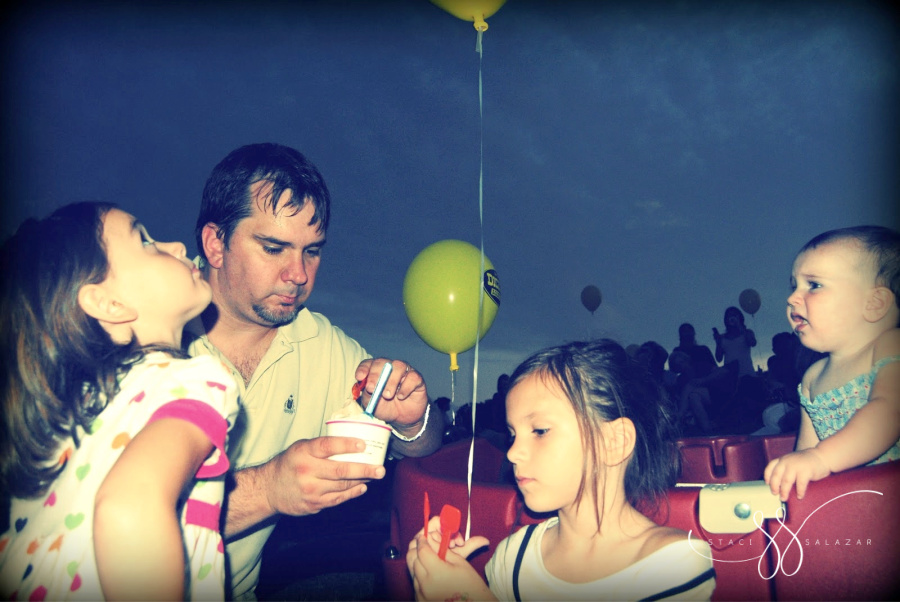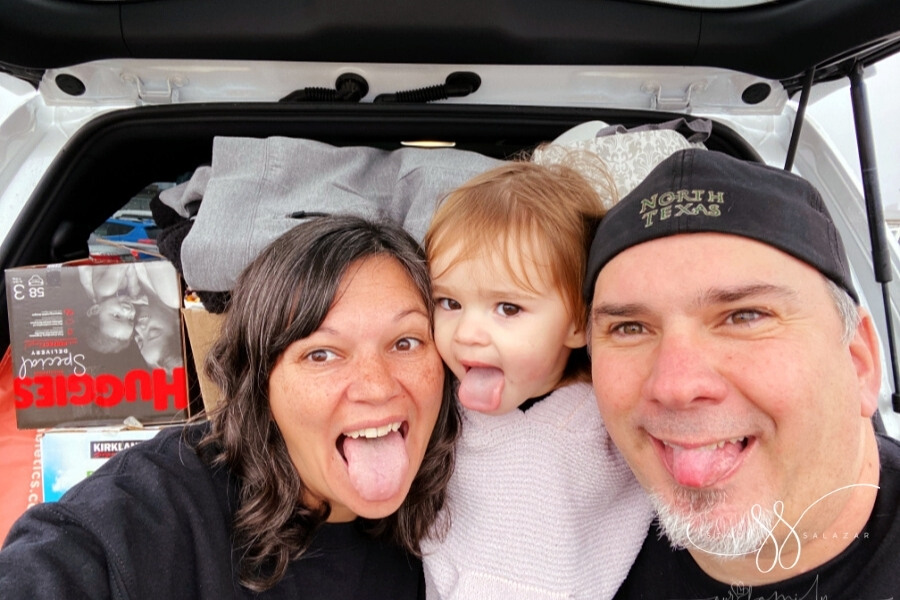When people look at our 3 year old they are often taken back. Why? Because of her size. She is not the build of your average 3 year old.
Even her Endocrinologist was amazed at both her height and weight. She kept repeating that Monkey was charting much larger than her “genetic potential“. This same Endocrinologist also asked us (with a sense of confusion) why we brought our daughter in that day.
Ummm… looking at her does not give you some indication?
And I do not say that to be rude. I just thought that at least her size was a small indicator. The other reason was because both her Speech Therapist and Occupational Therapist suggested it… and her Pediatrician thought it was a good idea.
So, there we were. In her office.
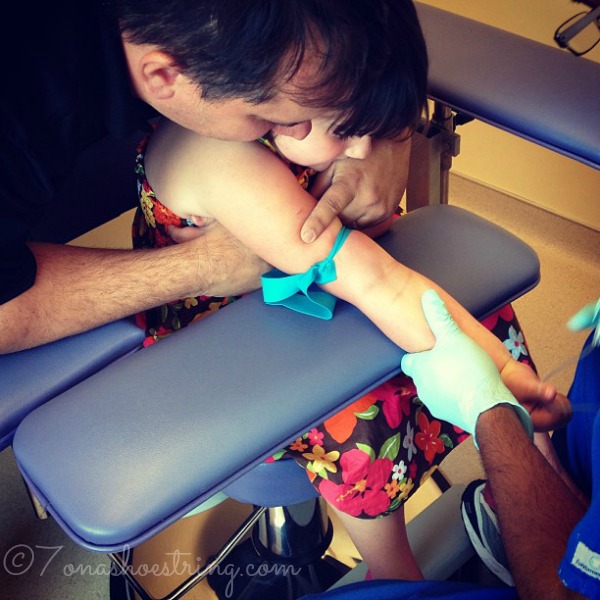
She repeatedly told us that Monkey’s original tests were very borderline and she was sure the tests would come back normal this second time around. And, once they did that, she would refer us to a Geneticist to have Monkey tested for Soto’s Syndrome.
This genetic disorder would explain her size, speech delays, skin rashes, hair texture, and even her sensory processing disorder. It made sense to us as well. Therefore, we had them draw blood.
And we waited.
For over 2 weeks… we waited.
I was at the point where “no news was good news” already. Then we received a phone call.
Diagnosis: Hashimoto’s Disease
What? Where did this come from? This was never an option? No one mentioned this hypothyroidism disorder that would affect her the rest of her life.
I immediately consulted the Mayo Clinic site. I refused to ask “Dr. Google” anything about Hashimoto’s Disease. I did not want to read anything but facts.
I decided the Mayo Clinic was my best resource for the time being.
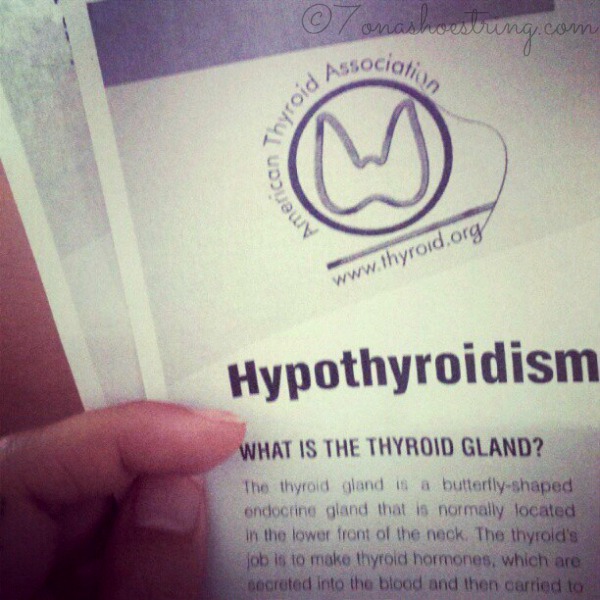
Hashimoto’s Disease (per the Mayo Clinic):
Hashimoto’s disease is a disorder that affects your thyroid, a small gland at the base of your neck, below your Adam’s apple. The thyroid gland is part of your endocrine system, which produces hormones that coordinate many of your body’s activities.
In Hashimoto’s disease, also known as chronic lymphocytic thyroiditis, your immune system attacks your thyroid gland. The resulting inflammation often leads to an under-active thyroid gland (hypothyroidism). Hashimoto’s disease is the most common cause of hypothyroidism in the United States. It primarily affects middle-aged women, but also can occur in men and women of any age and in children.
There you have it. The treatment? A pill that she must take every morning on an empty stomach. No dairy for at least an hour afterward.
Not good for the one child, who (just like her daddy) must get up and immediately have breakfast. Oh… and everyday for.the.rest.of.her.life. Ugh!
I cried. Colby smiled at me. Held me. I did not want my daughter to face this monster for the rest of her life. Yes, I know it could be worse. Yes, I know it can be somewhat controlled. Yes, I know my daughter is still relatively healthy.
But, perhaps it was also the guilt factor involved. Was it my fault? It is hereditary. Maybe it came from me. Neither Colby or I could think of anyone in our families that had it.
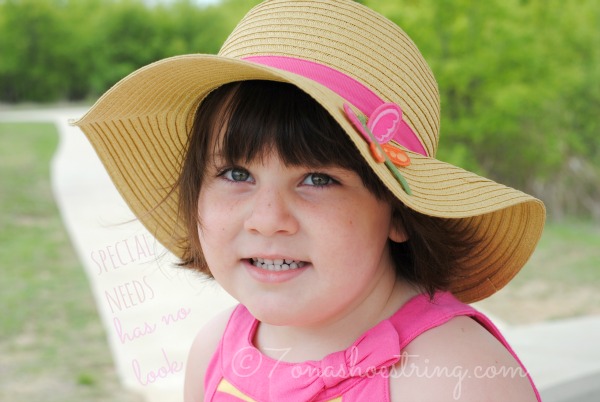
Another part of me… a much bigger part of me… does not want to watch my daughter struggle. With anything. What parent would want that for their child?
Monkey already faces challenges with her Expressive Speech Disorder and Sensory Processing. People already stare at her when she cries out of frustration due to her lack of communication abilities. They already comment on her size.
The general public already does not understand.
It hurts my heart to think of how she may be treated as she grows and better comprehends how cruel others can be.
But… I also know that her medicine can regulate her hormones and help her maintain her weight. I know that she can still live a long, healthy life. My friends with Hashimoto’s Disease assured me that they have learned to manage their disease. It gave my comfort to know I already had a support group well beyond my immediate family.
Actually, that Monkey had a support group outside the walls of our home. That is so very important to me.
What challenges do you face that you wished others understood?
If you have hypothyroidism to any degree I would love to hear from you. Advice. Encouragement. Whatever you have to offer would be awesome as we head out on this journey.


